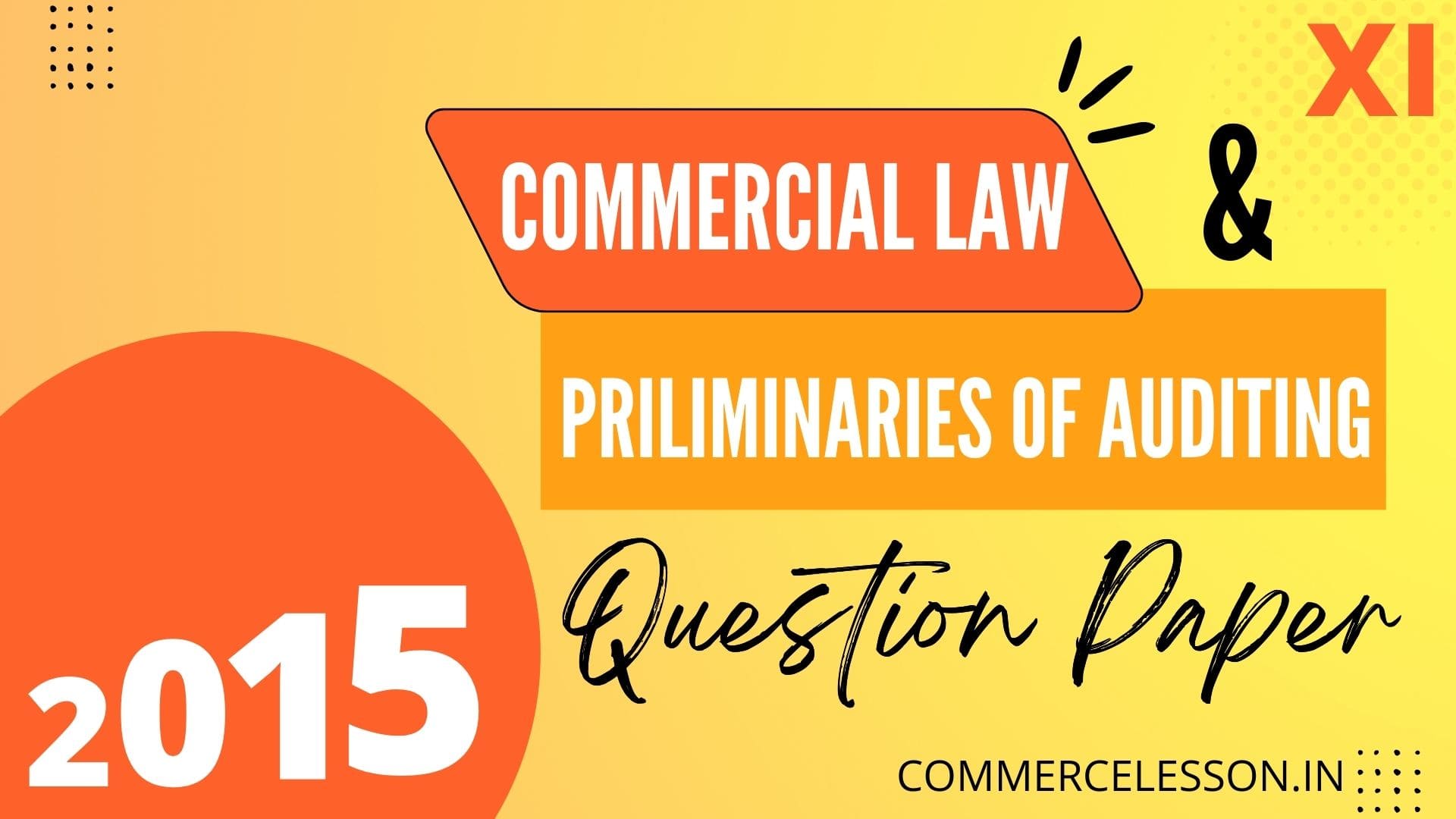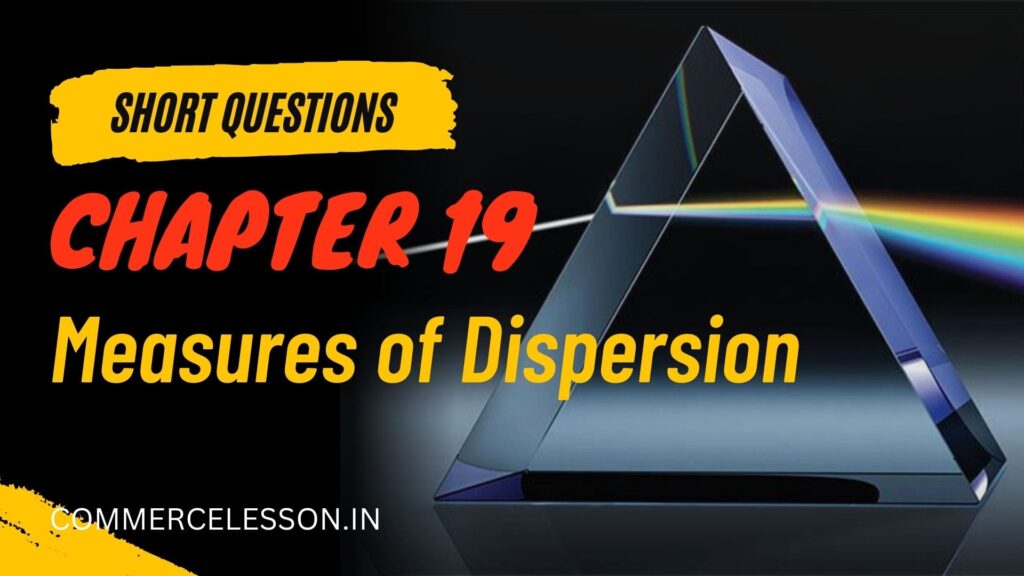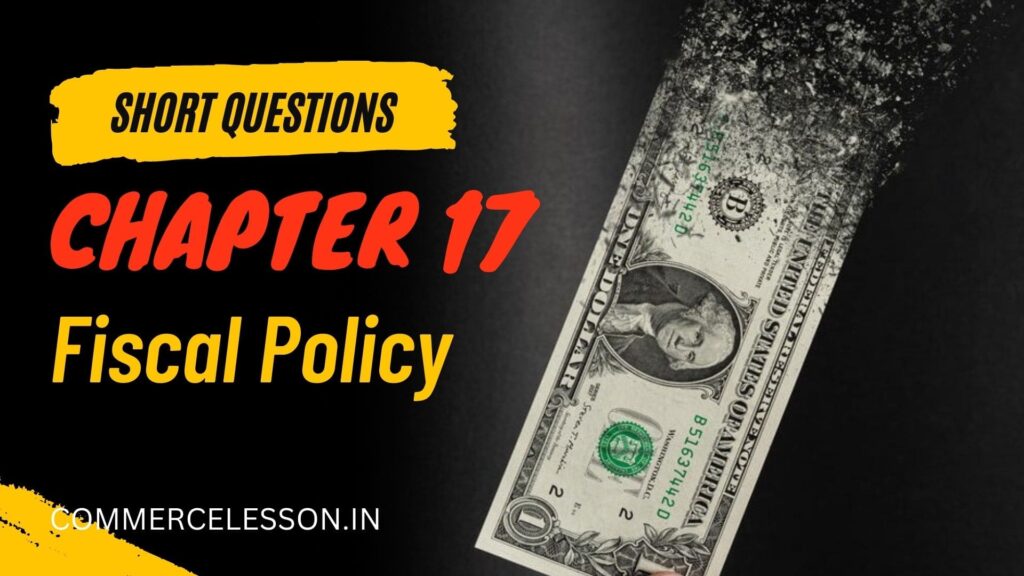Commercial Law and Preliminaries of Auditing – 2015
PART – A
Commercial Law
Group – A
1. Answer the following questions: [1×12=12]
Choose the correct answer:
(i) Which of the following is a source of Indian Commercial Law?
(a) Customs and usage
(b) Roman laws
(c) Legislation
(d) All of these
(ii) As per the law of contract, the person who makes a proposal is called –
(a) Offerer
(b) Offeree
(c) Potential buyer
(d) None of the above
(iii) An agreement which is enforceable by law is known as –
(a) Contract
(b) Promise
(c) Consideration
(d) None of these
(iv) Which of the following is an essential element of contract?
(a) Offer and acceptance
(b) Lawful consideration
(c) Certainty
(d) All of these
(v) ‘No consideration, no contract’ – Which of the following is not an exception to this?
(a) Natural love and affection
(b) In case of acceptance by conduct
(c) Completed gift
(d) Agency
(vi) Which of the following is a mode of revocation of an offer?
(a) By notice
(b) By lapse of time
(c) Non-fulfillment by the offerer of a condition precedent to acceptance
(d) All of these
(vii) The party defrauded in a contract has which of the following remedies?
(a) He can repeal the contract
(b) He may ask for damage
(c) He may insist on the performance of the contract
(d) Any of these
(viii) At the time of entering into a contract of sale, the goods that can be identified and agreed upon are called –
(a) Specific goods
(b) Unascertained goods
(c) Contingent goods
(d) None of these
(ix) ‘None can give who does not himself possess’ – Exception to this rule is –
(a) Sale by mercantile agent
(b) Sale by one of the joint owners
(c) both of these
(d) None of these
(x) The Doctrine of Caveat Emptor has been mentioned under which section of Sales of Goods Act?
(a) section 4
(b) section 3
(c) section 16
(d) section 12
(xi) Sale of Goods Act, 1930 applies to which of the following?
(a) Immovable goods
(b) Moveable goods other than actionable claims and money
(c) Pledge
(d) Bailment
(xii) Which of the following is the essential element of contract for the sale of goods?
(a) Consideration in money
(b) Buyer – Seller
(c) Transfer of property of goods
(d) All of these
Group – B
2. Answer the following questions (Alternatives are to be noted): [1×6=6]
(i) What is voidable contract?
(ii) What is future consideration?
Or, Is it essential for consideration to be adequate?
(iii) What is implied offer?
(iv) Define ‘Buyer’ as per the Sale of Goods Act.
Or, Define ‘Goods’ as per the Sales of Goods Act.
(v) Mention one implied warranty as per the Sales of Goods Act, 1930.
(vi) What is meant by transfer of property in goods?
Or, When an agreement to sell becomes a sale?
Group – C
3. Answer the following questions (Alternatives are to be noted): [4×4=16]
(i) What do you mean by commercial law?
(ii) ‘Mere silence is not fraud’- Explain.
Or, What is ‘Undue Influence’? Discuss its consequences. [2+2]
(iii) Distinguish between Sale and Agreement to sale.
Or, Discuss the essential elements of a contract for sale of goods.
(iv) State the rules relating to the transfer of property of goods in case of specific goods with the help of examples.
Group – D
4. Answer the following questions (Alternatives are to be noted): [6×1=6]
What is ‘Misrepresentation’? State its consequences. [2+4]
Or, Give a brief account of ‘incapacity to contract’. Can a minor be held liable for necessaries supplied to him?
PART – B
Preliminaries of Auditing
Group – A
5. Answer the following questions: [1×12=12]
Choose the correct answer:
(i) The function of auditing is –
(a) To prepare accounts
(b) To prepare statemeent of affairs
(c) To verify the accounts prepared
(d) None of these
(ii) When Accounting ends, _ begins.
(a) Book-Keeping
(b) Auditing
(c) Statistics
(d) Accountancy
(iii) Verification of the correctness of accounts is auditing’s _
(a) Primary objective
(b) Secondary objective
(c) Both of these
(d) None of these
(iv) Auditing of company accounts was made compulsory in India in the year –
(a) 1845
(b) 1900
(c) 1930
(d) 1956
(v) Showing the financial position of an organisaton to be better than its actual position through Manipulation is known as –
(a) Window dressing
(b) Creation of secret reserve
(c) Teeming and lading
(d) Embezzlement
(vi) The professional qualification of an auditor engaged in Cost Audit is –
(a) CA
(b) CMA (ICWA)
(c) M.Com
(d) (a) or (b)
(vii) Which of the following is not an advantage of perodical audit?
(a) Detailed checking of accounts
(b) Economy in times
(c) No monotony
(d) Good relation with employees
(viii) Internal auditor is appointed by the –
(a) Government
(b) Shareholders
(c) Directors
(d) Creditors
(ix) Statutory Audit is –
(a) Partial audit
(b) Compulsory
(c) Flexible
(d) All of these
(x) To whom is the report on audit of Central Government accounts submitted?
(a) Finance Minister
(b) Prime Minister
(c) President
(d) Comptroller and Auditor General
(xi) Which of the following is an objective of internal control system?
(a) Detection of error and fraud
(b) Prevention of error and fraud
(c) Quick preparation of final accounts
(d) All of these
(xii) Internal Check System is based on the principle of –
(a) Caveat Emptor
(b) Division of labour
(c) Centralisation
(d) None of these
Group – B
6. Answer the following questions (Alternatives are to be noted): [1×6=6]
(i) What is the primary objective of financial audit?
(ii) State one general qualification of an auditor.
Or, State one limitation of auditing.
(iii) Name two organisations where statutory audit is followed.
Or, State one feature of periodical audit.
(iv) What do you mean by Interim audit?
(v) State one advantage of Internal Check System.
(vi) Mention one differences between Internal control system and Internal check system.
Or, State a difference between Internal check system and Internal audit.
Group – C
7. Answer the following questions (Alternatives are to be noted): [4×4=16]
(i) Explain in brief the importance of auditing.
(ii) What do you mean by misappropriation of goods? Enumerate the measures of detecting Misappropriation of goods.
Or, Write a note on Errors in Accounting.
(iii) Discuss the features of Government audit.
Or, What is continuous audit? Mention the areas where continuous audit is applied.
(iv) Can the statutory depend on Internal audit? Explain.
Group – D
8. Answer the following questions (Alternatives are to be noted): [6×1=6]
“In a good system of internal check, the work of one is indirectly checked by the work of another” – Explain with examples.
Or, State the advantages and disadvantages of internal control system. [3+3=6]
Like our post?
We are available with lots and lots of commerce-related content.





[…] Commercial Law and Preliminaries of Auditing Question Paper 2015 | WBCHSE | Class 11 […]